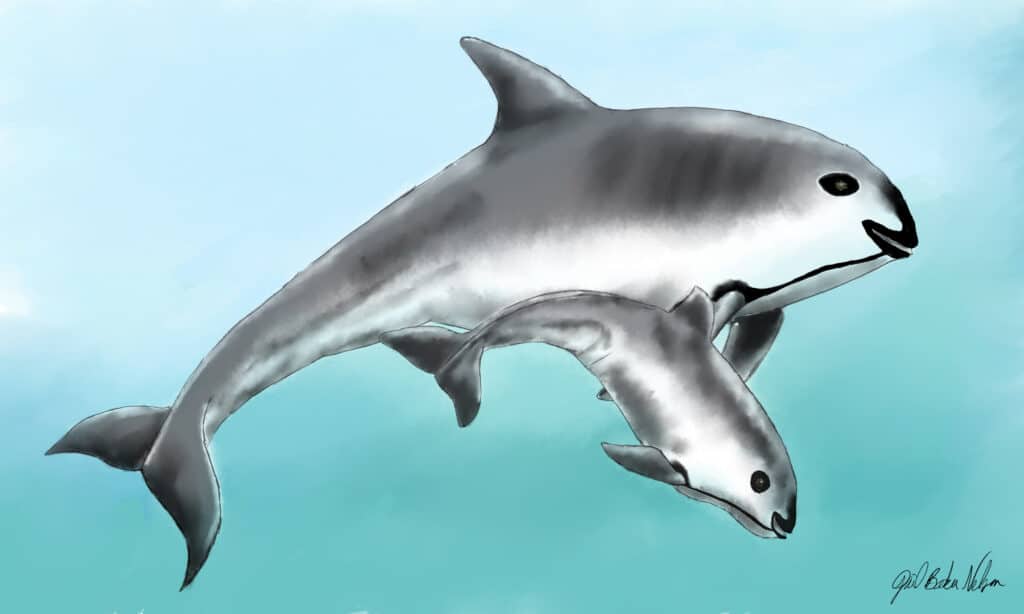The vaquita may be the world’s rarest — and the world’s most endangered animal. The vaquita is a small porpoise that lives primarily in the Sea of Cortez in Mexico. In 2019, scientists estimated that only 10 vaquitas lived in the wild. This November, they conducted another survey afraid that the animal would be extinct.
Much to their surprise, the vaquita was still there. Their numbers are still dwindling, but other endangered species have been able to come back from similar evolutionary cliffs. However, time is running out.
What is Happening To Vaquitas

Vaquitas are not disappearing due to natural causes. In 1997, their populations numbered 600, but due to illegal fishing in the northern Gulf of California, the species has all but gone extinct. Between 2011 and 2016, the vaquita population decreased by 90%.
The primary obstacle facing the vaquitas’ survival is the gill nets used in illegal fishing practices. The nets hang below the water’s surface. They drop twenty feet down and some are as wide as a football field. To a vaquita, this wall of mesh is deadly. They become entangled in the nets and drown. These nets are also the only documented reason for the vaquitas’ population decline.
The only way for the vaquita to survive is to ensure their habitat is free of gill nets.
Yet, this isn’t as simple as pulling the nets from the oceans. Many families in Mexico survive solely on the income they get from illegal fishing. Despite the ban on gill nets in a seven mile region of the northern Gulf of California, none of the rules are enforced. During the survey this November, researchers saw upwards of 100 boats illegally fishing with gill nets in the prohibited region.
Some advocacy groups have patrolled the region, removing any unattended nets. However, the conflicts between the advocacy groups and fishermen have turned deadly and therefore has created lots of animosity between the fishermen and conservationists.
The Role of the Totoaba
The secondary character in this conflict is the, also endangered, totoaba. This fish is a large, and extremely expensive rare fish that lives only in the Gulf of California. The fish sells between $20,000 and $80,000 per kilogram, but it’s bladder is the most sought after.
Used in a Chinese soup called fish maw, the totaba’s bladder is said to have medicinal properties including the ability to boost fertility. In China, this soup, and in turn, the totoaba bladder is incredibly valuable.
But, how is the totoaba related to the vaquitas?
The illegal fishing occurring in the Gulf of California is actually poaching. The fishermen are actually searching for the rare totoaba in order to sell its bladder to Chinese tradesmen. The gill nets that are so dangerous to the vaquita are the best nets for catching totoaba.
How to Protect the Vaquita
So, how do we protect the almost-extinct vaquita?
This requires political action. This year, Mexico arrested six people in relation to totoaba poaching. The United States has banned any seafood coming from the northern Gulf of California. Further political action could help protect the vaquita.
Some shrimp fishermen are also stepping in, hoping to save a part of their heritage. These fishermen are using alternative fishing methods or different nets that are less likely to entangle vaquitas. However, due to the lower yield of fish, these fishermen are having trouble living off their catch.
By bringing further attention to this issue, urging the international community to curb the market on totoaba bladders, demanding political action, and considering your own choices when shopping for seafood, the vaquitas could have a chance at survival.
The photo featured at the top of this post is © Paula Olson, NOAA, Public domain, via Wikimedia Commons – License / Original
Sources
- , Available here: https://www.nytimes.com/2021/11/23/climate/vaquita-mexico-extinction.html
- , Available here: https://porpoise.org/save-the-vaquita/?gclid=CjwKCAiA4veMBhAMEiwAU4XRrx6CydWq6eJmPnEtiq5EZNLNJ4WRCU6DbS4hc8-W22G-s4AaOpFxxBoCus8QAvD_BwE
- , Available here: https://www.npr.org/sections/goatsandsoda/2016/02/09/466185043/chinese-taste-for-fish-bladder-threatens-tiny-porpoise-in-mexico
Thank you for reading! Have some feedback for us? Contact the AZ Animals editorial team.






